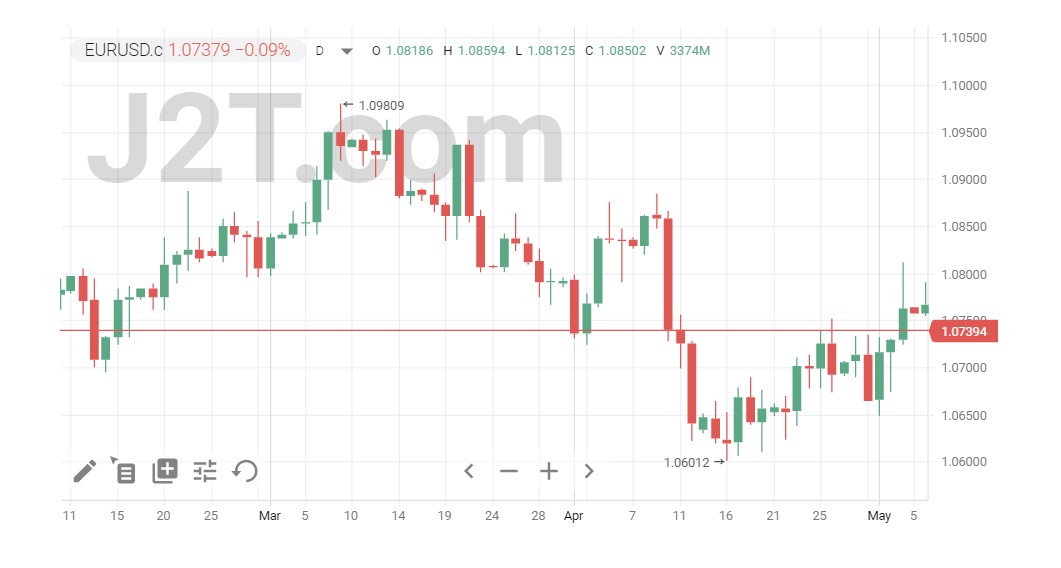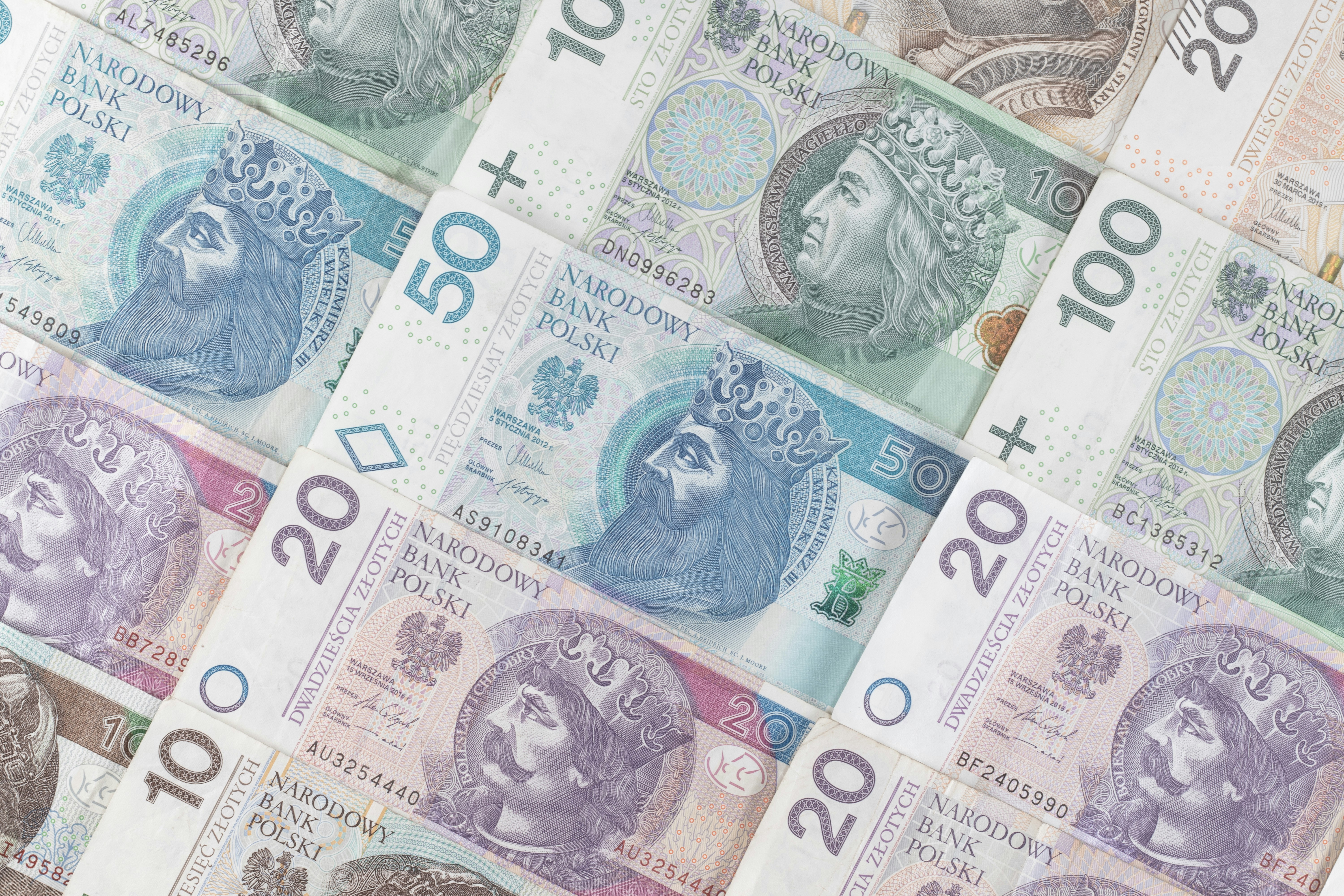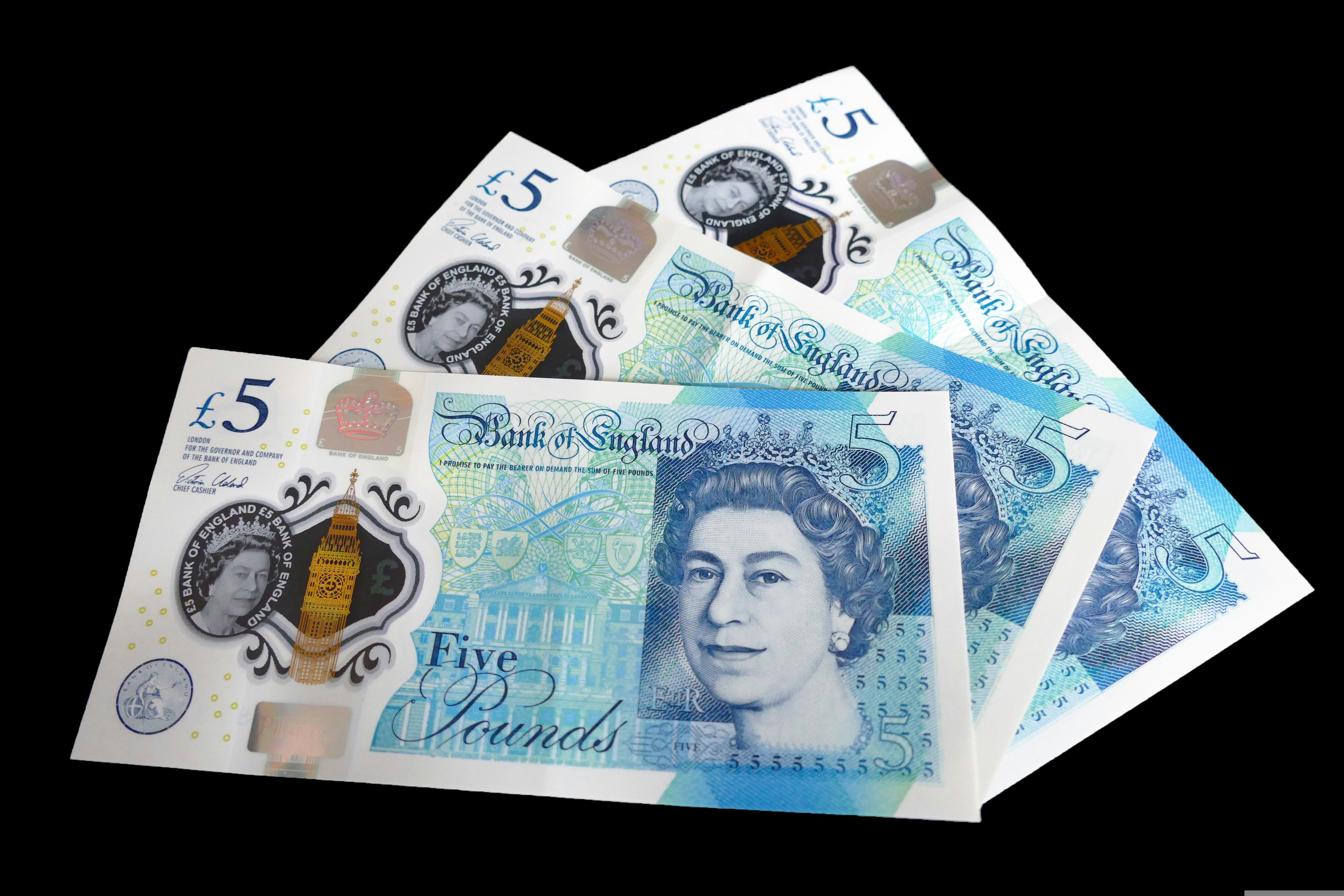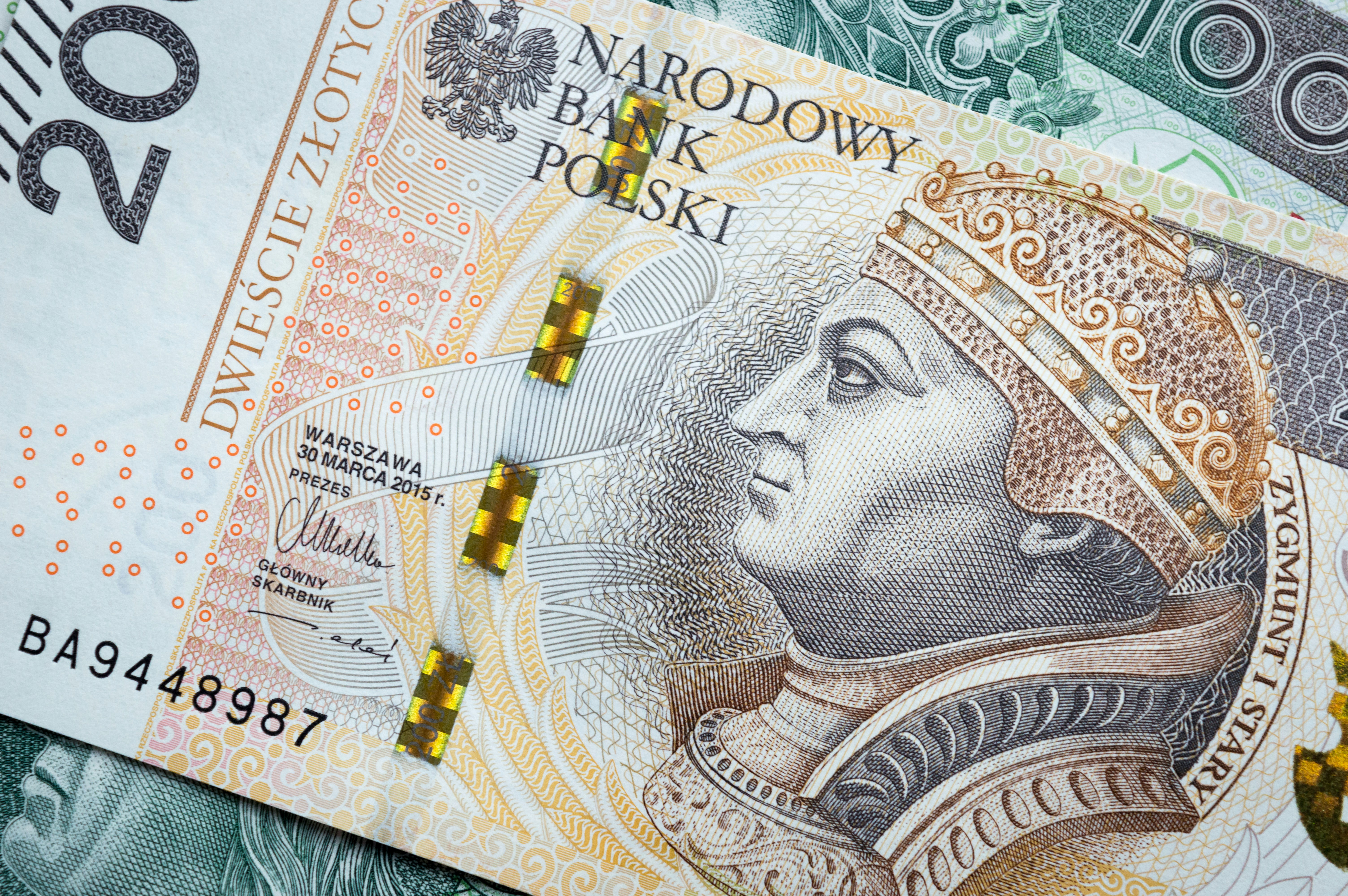What Is Forex? A Beginner's Guide
)
The Foreign Exchange Market, commonly referred to as Forex, acts as the foundation for worldwide trade and investment. It is a decentralized market where currencies are exchanged, with daily transactions often surpassing $6 trillion. This massive volume sets it apart as the biggest and most dynamic financial market globally.
This article will simplify the Forex market's intricacies for newcomers and experienced investors. We will lead you through the different aspects of trading in the Forex market, covering different currency pairs, various trading strategies, the pros and cons of Forex trading, and more. Whether you want to understand the basic concepts of Forex or become proficient in advanced trading techniques, this article will act as your comprehensive manual.
Table of Contents
Key Takeaways
What is the Forex Market?
How Forex Trading Works
Getting Started with Trading
Forex Trading Strategies
Managing Risks
Major Currency Pairs
Exotic Currencies
Forex Terminology
Forex Trading Platforms
The Pros and Cons of Forex Trading
Is Forex Trading Profitable?
Conclusion
FAQs
Key Takeaways
-
24-Hour Market: The forex market runs continuously, connecting key financial hubs across the globe.
- Diverse Participants: Central banks, institutions, hedge funds, and individual traders are all important players in the market.
- Trading dynamics. Trading currency pairs involve one selling and the other buying. The exchange rate depends on many economic indicators and events.
- Trading strategies. There are enough main types – scalping, day trading, swing trading, and positional trading.
- Risk management – for successful forex trading, it is necessary to minimize risks using stop-loss orders or other approaches.
- Low entry threshold – beginners can start trading forex almost from scratch, but deep practice and minimum investments are still recommended.
What is the Forex Market?
Forex, which stands for foreign exchange, is a global marketplace for trading currencies. This market is vital for facilitating international trade and investments by enabling currency conversion. Here are some fundamental market characteristics and definitions that you will encounter when trading:
-
Currency pairs. Forex market assets are known as currency pairs. It means that during one trade, you buy one currency use while the other simultaneously sells it. Consequently, you may purchase a euro and sell the US dollar in the EUR/USD pair.
- Global scope. Forex is open and functioning 24 hours a day, five days a week on a global scale. Major economic hubs include New York, London, Tokyo, and other cities with essential financial centers.
- Liquidity and trading volume. The forex market is the most liquid in the world, given the massive amount of daily trades which are worth trillions of dollars in total. As a result, the high liquidity allows the quick execution of large forex trades at the desired prices.
- Factors influencing exchange rates. Exchange rates of the national currencies in the forex are affected by numerous factors, which are the following: economic indicators, political events and decisions, and market mood.
Forex Market Participants
The Forex market is diverse, hosting a variety of participants who each influence its daily operations. Key players include:
-
Central Banks: These entities adjust currency values to manage economic stability and control inflation.
- Banks and Financial Institutions: Often trading large volumes, these institutions manage currency exposure and client transactions.
- Hedge Funds and Investment Managers: They leverage complex strategies to speculate on currency shifts, using technical analysis and other tools.
- Corporations: Especially multinational ones, engage in Forex to hedge against currency risk in their overseas operations.
- Retail Investors: Individuals participate via brokers, focusing on spot and forward market opportunities to benefit from currency price movements.
This mix of participants ensures the Forex market's status as a dynamic and fluid financial environment, with transactions involving well-known currencies such as the U.S dollar, British pound, and Swiss franc.
How Forex Trading Work

In Forex trading, participants exchange currency pairs, aiming to profit from shifts in exchange rates. The FX market, the most extensive in the world, sees vast daily trading volumes. Key transactions typically involve major currencies like the US dollar and Euro. Factors such as economic updates, market trends, and global events drive these exchange rates. With markets open around the clock, traders execute trades across various international hubs, including the New York Stock Exchange, adapting quickly to any changes in the financial landscape.
Currency Pairs and Exchange Rates
In the Forex market, each transaction involves a pair of currencies, like the EUR/USD, where the EUR is what you're buying, and the USD is what you're using to pay. The exchange rate tells you how many dollars you need to spend to buy one Euro. These rates change constantly based on supply and demand dynamics.
For a practical example, suppose Europe releases strong economic data, suggesting its economy is growing faster than expected. Forex traders might start buying Euros because they believe the Euro will strengthen. As demand for the Euro increases, so does its value against the dollar, making the EUR/USD rate go up. This means you now need more dollars to buy Euros than before.
This scenario shows how sensitive exchange rates are to economic news and shifts in market sentiment. Keeping up with these changes is crucial for traders who need to make quick decisions based on the latest data.
Spot Trading and Settlement
Trading currency pairs in the FX market through spot trading involves directly exchanging and settling pairs such as USD/JPY or EUR/USD, usually completed within two business days. This form of trading is distinct from derivatives trading, like futures, which are resolved in the future. Constantly occurring spot trading allows currency traders and financial institutions to respond to immediate price fluctuations driven by changes in supply and demand, interest rates, and economic news. Spot transactions play a vital role in providing the liquidity and activity that define the currency market as the world's most significant financial market.
Lot Sizes and Leverage
In forex trading, it's crucial to grasp the concepts of lot sizes and leverage to manage trades effectively. A "lot" refers to the quantity of currency units you deal in:
-
Standard Lot: 100,000 units of the base currency.
- Mini Lot: 10,000 units.
- Micro Lot: 1,000 units.
- Nano Lot: Occasionally available, consists of 100 units but is not universally offered.
It’s important to note that in forex many traders implement leverage. It’s a useful but complicated and risky tool that increases your buying power in the market. For example, with 40:1 leverage, a forex trader can control a position worth $40,000 with only $1,000. This significantly enhances the possibility for higher profits but also heightens the risks of substantial losses, emphasizing the need for a carefully formulated risk management strategy. Furthermore, it enables traders to hold positions substantially larger than their account balances.
-
Expands trading capacity: Enables traders to hold positions that greatly exceed their account balances.
- Potential for higher profits: Can increase gains on successful trades.
- Increased risk: Also means potential losses could surpass the initial investment.
Getting Started with Trading
Beginning forex trading requires a systematic approach to ensure a seamless start. Below is a useful guide to start your trading endeavors:
-
Choose a reliable broker. Opt for a strictly regulated platform that offers a wide choice of currency pairs, including key currencies such as the U.S. dollar and the British pound.
- Fund your forex trading account. To deposit funds into your forex account you can usually use different methods like bank transfers, credit cards, or e-wallets.
- Practice with a demo account. Use a demo account to refine your trading skills risk-free.
- Formulate your trading strategy. Develop a trading plan that fits your risk appetite and goals based on your experiences and learnings from using the demo account.
- Begin cautiously. Start with smaller investments to limit risk as you gain more trading experience.
Forex Trading Strategies
Forex trading makes use of two main methods: technical analysis and fundamental analysis. Technical analysis involves analyzing chart patterns and previous price movements to forecast future trends. Conversely, fundamental analysis evaluates various economic indicators and significant events that could affect currency values.
Various trading strategies are classified based on how long trades are held for.
- Scalping involves making quick, short-term trades to achieve small profits.
- Day trading involves opening and closing trades on the same day in order to steer clear of overnight market fluctuations.
- Swing trading involves taking advantage of anticipated short-term market movements, with trades lasting multiple days.
- Position trading is a strategy that involves holding positions for several weeks to months, concentrating on overall economic conditions and trends.
For example:
- A technical analyst might use scalping to take advantage of rapid price changes.
- A fundamental analyst may lean towards position trading, guided by long-term economic projections.
Deciding on a trading strategy requires evaluating one's risk tolerance, the amount of time available for market observation, and the depth of one's knowledge of market analysis techniques.
Managing Risks
Navigating the volatile forex market requires traders to adopt specific protective strategies. A fundamental practice is implementing stop-loss orders. This method allows traders to set predetermined loss thresholds, ensuring that positions are automatically liquidated if the market reaches these levels, thereby curtailing potential losses during unexpected fluctuations.
It's equally important for traders to select forex brokers that comply with strict regulations. Traders must ensure that their brokers are licensed and overseen by reputable financial regulatory bodies. This precaution guarantees that the brokerage operates to high standards of professionalism and financial security, contributing to the trader's peace of mind.
Moreover, managing the size of positions strategically can significantly reduce financial risks. Traders should invest only a modest percentage of their overall capital in any single transaction. This prudence helps safeguard against the severe consequences of unfavorable trades and maintains adequate capital to endure market unpredictability, allowing for continued trading activities.
Adopting these methods effectively enables traders to manage risks in the forex market more confidently and safely, enhancing their prospects for long-term trading success.
Major Currency Pairs
In forex trading, certain pairs stand out due to their high volume and pivotal roles in the global economy. Notably, the U.S. Dollar is involved in about 54% of all forex transactions, underscoring its importance:
- EUR/USD: This is the most traded pair, linking the Euro and the U.S. Dollar. It's a barometer for the economic health between Europe and the United States.
- USD/JPY: Pairing the U.S. Dollar with the Japanese Yen, this currency duo is greatly influenced by the interest rate decisions from the U.S. Federal Reserve and the Bank of Japan.
Additional key pairs include:
- GBP/USD: Often moves with changes in the economic outlook of the UK compared to the U.S.
- USD/CHF: Typically inversely related to the EUR/USD as it reflects shifts in global risk.
- AUD/USD: Sensitive to shifts in commodity prices, crucial for Australia's economy.
- USD/CAD: Closely tied to oil prices due to Canada's large oil exports.
These pairs are traded 24 hours a day on platforms like the New York Stock Exchange and are crucial in the currency market, offering opportunities for traders to capitalize on fluctuations in exchange rates driven by global economic events.
Exotic Currencies
Exotic currencies are the lesser-known currencies from emerging or smaller economies and aren't as widely traded as the big players like the USD or EUR. Examples include the Turkish Lira, South African Rand, and Brazilian Real. These currencies can be more unpredictable and carry higher risks and potential rewards because they aren't as liquid and have wider spreads. When trading exotics, pairing them with a major currency can help manage these risks. It's also important to keep an eye on the political and economic news from these countries, as it can heavily influence their currency values.
Forex Terminology
Forex trading involves several crucial terms that beginners must understand to navigate the markets effectively:
- Pips: A pip represents the smallest price move that a currency exchange rate can make based on market convention. Typically, a pip is equivalent to a one-digit movement in the fourth decimal place of a currency pair, such as 0.0001 for most major currencies.
- Leverage: Leverage in forex trading allows traders to gain a larger exposure to the market than the amount they deposited initially. For example, with a leverage of 100:1, you can control $100,000 in the market with just $1,000 of your capital.
- Order Types: Several types of orders can be placed in forex trading, including:
- Market orders to buy or sell at the current market price.
- Limit orders to specify the maximum or minimum price at which you are willing to buy or sell.
- Stop orders to limit losses or lock in profits at a certain price. - Derivatives and Spot Markets:
- Derivatives such as options, futures, and forwards are financial instruments derived from the value of underlying assets (like currency pairs) and agree upon a future transaction. They allow traders to hedge against risks or speculate.
- Options give the right, but not the obligation, to buy or sell currency at a predetermined price before a specific date.
- Futures are contracts to buy or sell currency at a set price and date, obligating both parties to fulfill the contract.
- Forwards are similar to futures but are privately negotiated and not traded on an exchange.
- Contrarily, the spot market deals with the immediate buying and selling of currency at the current market price.
Forex Trading Platforms
Forex trading platforms equip individual traders with a suite of specialized tools designed to help navigate the complexities of the currency markets. These platforms include several essential functions:
- Technical Analysis Tools: Traders have access to advanced charting capabilities that feature numerous technical indicators such as moving averages, MACD, and RSI. These resources assist in the examination of market trends, enabling traders to make decisions based on detailed historical data.
- Demo Accounts: Ideal for beginners or those looking to refine their strategies, demo accounts offer a risk-free way to practice trading. These accounts use virtual funds, allowing traders to experience the market's dynamics without financial risk.
- Mobile Access: With the increasing need for mobility, many platforms now provide mobile apps that let traders access their accounts on the go. These apps support real-time data streaming and trade execution capabilities, ensuring traders can always engage with the market, wherever they are.
Incorporating these features, forex trading platforms help personalize the trading journey, fostering both skill development and strategic flexibility in market participation.
The Pros and Cons of Forex Trading
Forex trading, or the exchange of foreign currencies, is a popular financial activity for many investors due to its unique characteristics and opportunities. Here are some of the pros and cons associated with this type of trading:
Pros of Forex Trading:
- High Leverage: Forex markets offer significant leverage, allowing traders to control large positions with a relatively small amount of capital. This can amplify profits if trades move in your favor.
- Market Accessibility: The forex market works 24 hours a day, five days a week, providing constant opportunities for traders to engage regardless of their geographic location or time zone.
Cons of Forex Trading:
- Market Volatility: While volatility can be profitable, it also increases the risk of large losses. Forex markets can experience swift price movements due to economic reports, geopolitical events, and market sentiment shifts.
- Complex Market Drivers: Understanding what drives currency movements involves monitoring a complex interplay of global economic indicators, political events, and central bank policies. This complexity can be challenging for both new and experienced traders.
In conclusion, forex trading offers exciting opportunities but also comes with substantial risks. It’s crucial for prospective traders to consider their financial goals and risk tolerance before diving into the forex market as well as choose a reputable trading platform to trade with. This balanced view ensures that individuals make informed decisions that align with their investment strategies and personal financial objectives.
Is Forex Trading Profitable?
Forex trading can be profitable, but it is not without its challenges and risks. The potential for profitability largely depends on the trader's skill, strategy, and risk management practices. Traders who are well-versed in analyzing market conditions, employing effective trading strategies, and maintaining disciplined risk management protocols can indeed find success and generate profits.
However, the forex market's high volatility and complexity also mean that it carries a significant risk of loss. Many traders, especially beginners, may struggle to achieve consistent profitability without sufficient experience, knowledge, and emotional control. The leverage available in forex trading can both amplify profits and losses, making it a double-edged sword.
In summary, while forex trading offers the opportunity for substantial financial gains, it requires careful strategy, ongoing education, and strict adherence to risk management to truly be profitable.
Conclusion
In conclusion, new forex traders are encouraged to understand the inherent risks associated with trading thoroughly and to utilize demo accounts for gaining experience without financial risk. Starting with small amounts of capital that one can afford to lose is also advisable, as it helps in managing risk more effectively. Moreover, incorporating forex trading into a diversified investment portfolio can potentially enhance overall returns while spreading risk. This balanced approach is essential for anyone looking to enter the forex market with a cautious yet optimistic outlook.
FAQs
What Is the difference between forex and CFD Trading?
Forex trading involves the actual exchange of currencies, while CFD trading allows traders to speculate on currency price movements without owning the currencies.
What Is the difference between forex and futures trading?
Forex trading occurs in the spot market with immediate transactions, whereas futures involve contracts for future exchanges at set prices.
What Is the best time to trade forex?
The best time to trade forex is during overlapping market hours of major financial centers, increasing liquidity and volatility.
What are the best forex trading strategies?
Effective forex strategies include scalping for quick profits, day trading, swing trading for short-term movements, and position trading based on long-term trends.
Is $100 enough for forex?
While $100 can start forex trading with micro lots and high leverage, it limits potential profits and increases risk exposure.
Is forex easy for beginners?
Forex trading can be complex and challenging for beginners, requiring substantial learning and cautious initial investments.
Can you make money with forex?
Profitability in forex depends on skill, strategy, and risk management, with market volatility offering both profit opportunities and risks.



)